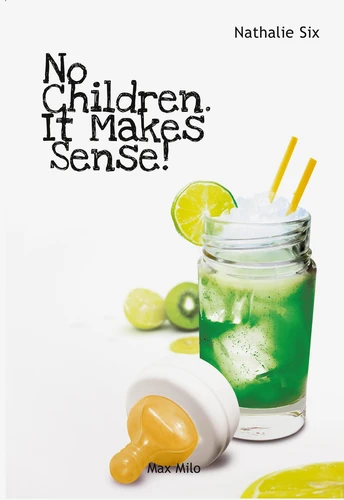No Children. It Makes Sense!. Survey on the Phenomenon of Non - Parents
Par :Formats :
Disponible dans votre compte client Decitre ou Furet du Nord dès validation de votre commande. Le format ePub protégé est :
- Compatible avec une lecture sur My Vivlio (smartphone, tablette, ordinateur)
- Compatible avec une lecture sur liseuses Vivlio
- Pour les liseuses autres que Vivlio, vous devez utiliser le logiciel Adobe Digital Edition. Non compatible avec la lecture sur les liseuses Kindle, Remarkable et Sony
- Non compatible avec un achat hors France métropolitaine
 , qui est-ce ?
, qui est-ce ?Notre partenaire de plateforme de lecture numérique où vous retrouverez l'ensemble de vos ebooks gratuitement
Pour en savoir plus sur nos ebooks, consultez notre aide en ligne ici
- Nombre de pages224
- FormatePub
- ISBN978-2-315-01176-6
- EAN9782315011766
- Date de parution04/07/2023
- Protection num.Adobe DRM
- Taille993 Ko
- Infos supplémentairesepub
- ÉditeurMax Milo
Résumé
"Kids are great. It's a unique process that everyone should experience." Except that today, 1 in 20 French people refuse to have children. What are the reasons for this "voluntary infertility?"
Do we really know why we have children? Isn't having children an obstacle to personal and professional development? In an overpopulated and polluted world, isn't it selfish to take up too much space by having a family? Don't children cost too much to individuals and to society?
The author investigates with dozens of women and men for whom the "duty to procreate" rings hollow.
Among these "non-parents" are exclusive lovers, artists, careerists, religious people, traumatized children, eternal teenagers, environmentalists, convinced Malthusians, as well as feminist activists who have made their refusal to give birth a standard, in order to assert themselves in a society that praises all mothers and family values. Nathalie Six has been a journalist for eight years and has written for the magazines Femmes, Nouvel Obs, Figaro and Figaro, L'Orient littéraire, and Livres Hebdo, among others.
Among these "non-parents" are exclusive lovers, artists, careerists, religious people, traumatized children, eternal teenagers, environmentalists, convinced Malthusians, as well as feminist activists who have made their refusal to give birth a standard, in order to assert themselves in a society that praises all mothers and family values. Nathalie Six has been a journalist for eight years and has written for the magazines Femmes, Nouvel Obs, Figaro and Figaro, L'Orient littéraire, and Livres Hebdo, among others.
"Kids are great. It's a unique process that everyone should experience." Except that today, 1 in 20 French people refuse to have children. What are the reasons for this "voluntary infertility?"
Do we really know why we have children? Isn't having children an obstacle to personal and professional development? In an overpopulated and polluted world, isn't it selfish to take up too much space by having a family? Don't children cost too much to individuals and to society?
The author investigates with dozens of women and men for whom the "duty to procreate" rings hollow.
Among these "non-parents" are exclusive lovers, artists, careerists, religious people, traumatized children, eternal teenagers, environmentalists, convinced Malthusians, as well as feminist activists who have made their refusal to give birth a standard, in order to assert themselves in a society that praises all mothers and family values. Nathalie Six has been a journalist for eight years and has written for the magazines Femmes, Nouvel Obs, Figaro and Figaro, L'Orient littéraire, and Livres Hebdo, among others.
Among these "non-parents" are exclusive lovers, artists, careerists, religious people, traumatized children, eternal teenagers, environmentalists, convinced Malthusians, as well as feminist activists who have made their refusal to give birth a standard, in order to assert themselves in a society that praises all mothers and family values. Nathalie Six has been a journalist for eight years and has written for the magazines Femmes, Nouvel Obs, Figaro and Figaro, L'Orient littéraire, and Livres Hebdo, among others.







